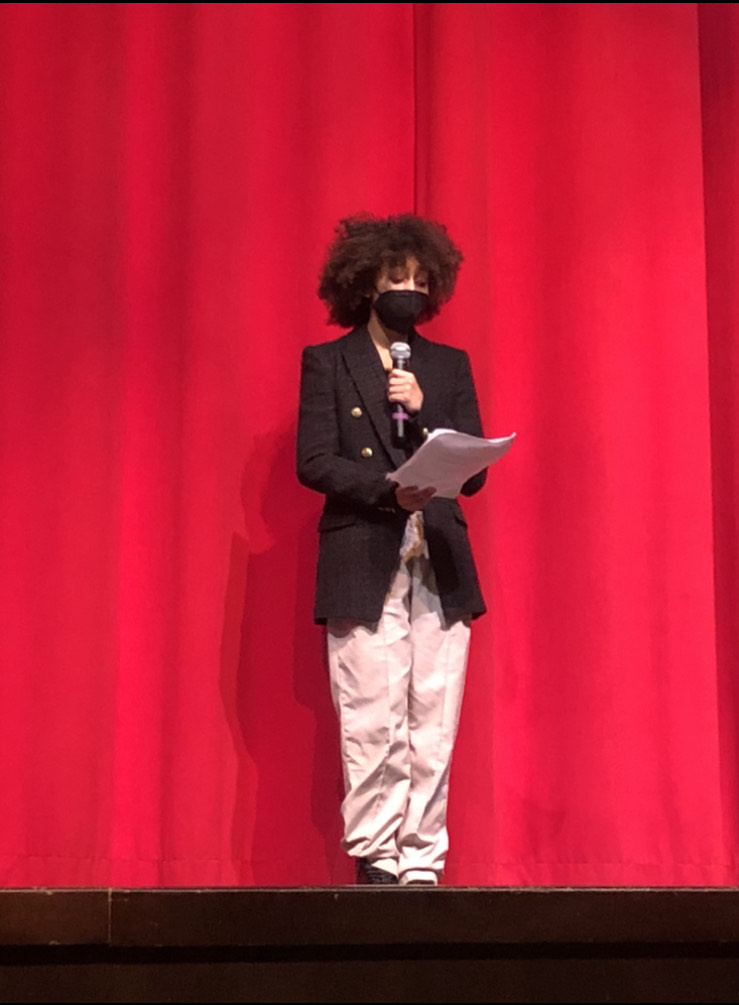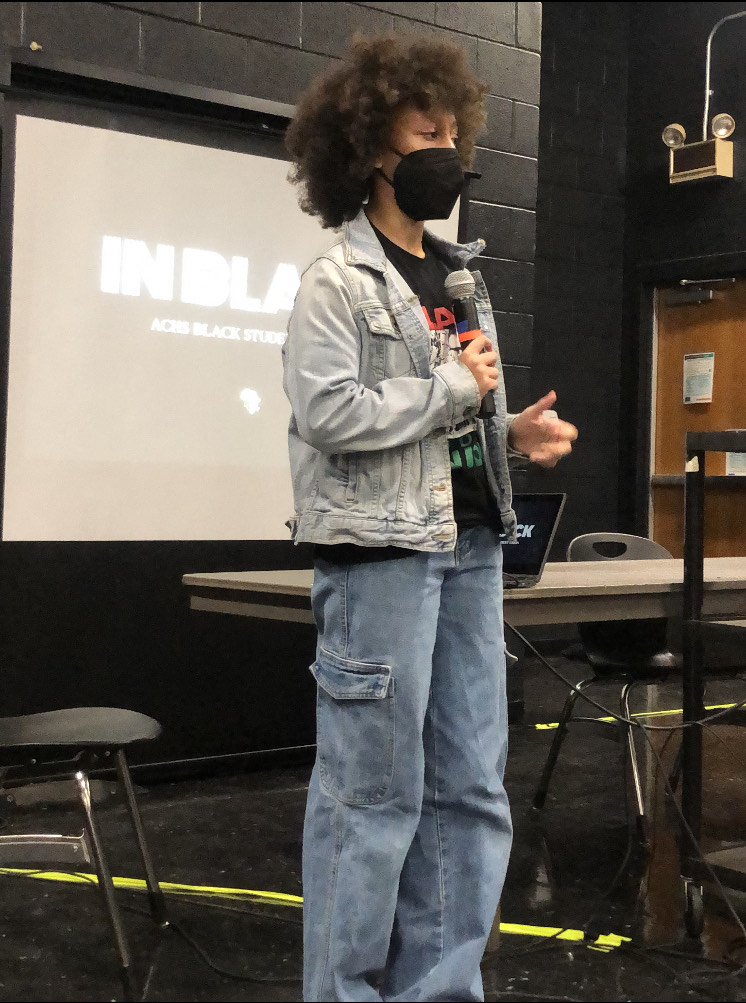By Salma El Gourchal
Yahney-Marie Sangaré is a 16-year-old sophomore at Alexandria City High School who is prominent in the school’s fine arts department as an adolescent playwright prodigy. She has written multiple plays and poems for AC’s theater department and clubs like the Black Student Union. She is also a leader in integrating Black arts into ACHS art curriculum. But what makes her… her? How did she become this passionate artist and leader? Labyrinth magazine takes a deeper look behind the scenes of Yahney-Marie.
We asked Yahney some questions on her upbringing in the arts to get some insight.

What first got you interested in the arts? What inspired you?
“I grew up around the arts,” Yahney said. Yahney’s dad was the person to first introduce her. Her dad, who is originally Malian and Liberian, makes and sells jewelry and also is heavily involved in the African arts scene. Yahney recalled how, as a young child, she would scribble pictures on paper using crayons with the help of her mother, who would write down the words young Yahney-Marie would say out loud. Yahney describes these memories as her “earliest form of storytelling.” At eight years old, Yahney discovered photo-editing and graphic design which became the start of her journey in visual arts.
How old were you when you created your first significant/serious piece of art, whether that be drawings, poetry, or music?
Yahney has been creating since she was old enough to know how to create. She told us about a notable poem from third grade called “Stories.” She recalls it being some sort of “amalgamation of sonder” that she could not place words to at the time. “Stories” eventually won the ACPS Poetry Contest for elementary schoolers. Two years later, Yahney won that same contest again. Due to her winning the same contest twice, ACPS had to implement a new rule where somebody couldn’t win twice in the same age bracket. Another noteworthy piece of art was a collaborative fantasy book draft about fae and revolution, with the help of a friend. She cherishes memories of the thrills she felt as a writer in elementary school.
How do you involve your love for the arts in the extra-curricular activities you are in, for example, the Black Student Union?
Yahney is the head of the Black Arts committee of the Black Student Union of Alexandria City High School. The goal of the committee is to involve, promote, and empower Black involvement in the arts at ACHS. She is also an avid member of the theater department at the school. She recently participated in the fall play Facing Our Truth, which is focused around racial injustice. Yahney also wrote and directed a play that at its roots was about Black generational trauma and lynching, called Someday, for the one-acts competition. She created this play for the Advanced Drama Class, who presented it for the Black History Month Festival, Mirrors of Marquis. Over the summer of 2021, Yahney-Marie hosted many poetry workshops in Old Town for the youth of the city, promoting poetry as “an accessible way of expression.” She is also a writer for ACHS’s student newspaper, Theogony. Yahney says she tries her best to write diverse narratives and include multifaceted perspectives, for example, for her piece on the implementation of SROs in Alexandria City Public Schools, she got opinions from students of different racial and socioeconomic backgrounds. “I think that art is the way of revolution,” said Yahney, “A tool of education; an antidote and a weapon of war.”

Do you see yourself pursuing higher education or a career in the arts?
Yahney’s reply was honest: she doesn’t think she will. She believes that art will follow her into any field she plans to pursue, from political science to history to data analytics. “The tired truth of the high school artist is realism,” she said as she reflected on her journey so far. Yahney views art as “a liaison of culture; the lingua franca of the world.” She strongly wishes to be a playwright that travels the world telling strong and powerful stories, saying “My soul belongs to theater.”
What would you say to someone in elementary or middle school or just someone in general who wants to take part in the arts? What advice would you give them?
Yahney would tell the aspiring artist to “not be afraid and do not let yourself be discouraged, especially people of color.“ She strongly believes STEM and the arts cannot exist without each other and finds it beautiful. She heavily recommends that younger kids understand that “art is the way you breathe life into your narrative.” Yahney also suggests getting involved in the arts scene at their school and joining a theater program. “Do what you like, what calls to you. The arts are for everyone, non-negotiably. That’s their intention.”
Do you believe that art has helped you become a better person or helped you during hard times in your life?
“Absolutely.” Yahney strongly believes that art has allowed her to connect with people who she would have otherwise never thought of connecting with. “Art builds an indescribable empathy that I do not think can be experienced in other fields,” she says, “It is the basis of humanistic understanding, philosophy, metaphysics; it bridges impossible barriers.” She’s gotten the chance to work with youth and see how “budding poetic minds make lightning into thunder.” She says it is the most fulfilling thing she has ever done. In terms of hard times of her life, she has recently begun to record her years by the poems she writes in her poetry documents. She constantly goes back to previous documents just to feel the depth of emotion that she once processed through spare words. Yahney thinks her visual art is a lot more light-hearted than her other work and can be “distracting.” She compares the way we use music to distract ourselves to the digital painting app, Procreate, where she likes to sketch out characters and give them life and motivation. Yahney truly believes that she will never “feel at home” in any living room as much as she does in the theater. “I express endless gratitude to each experience, no matter how good or bad, I have had in the field; imperfectly, I hope to live in its light.”